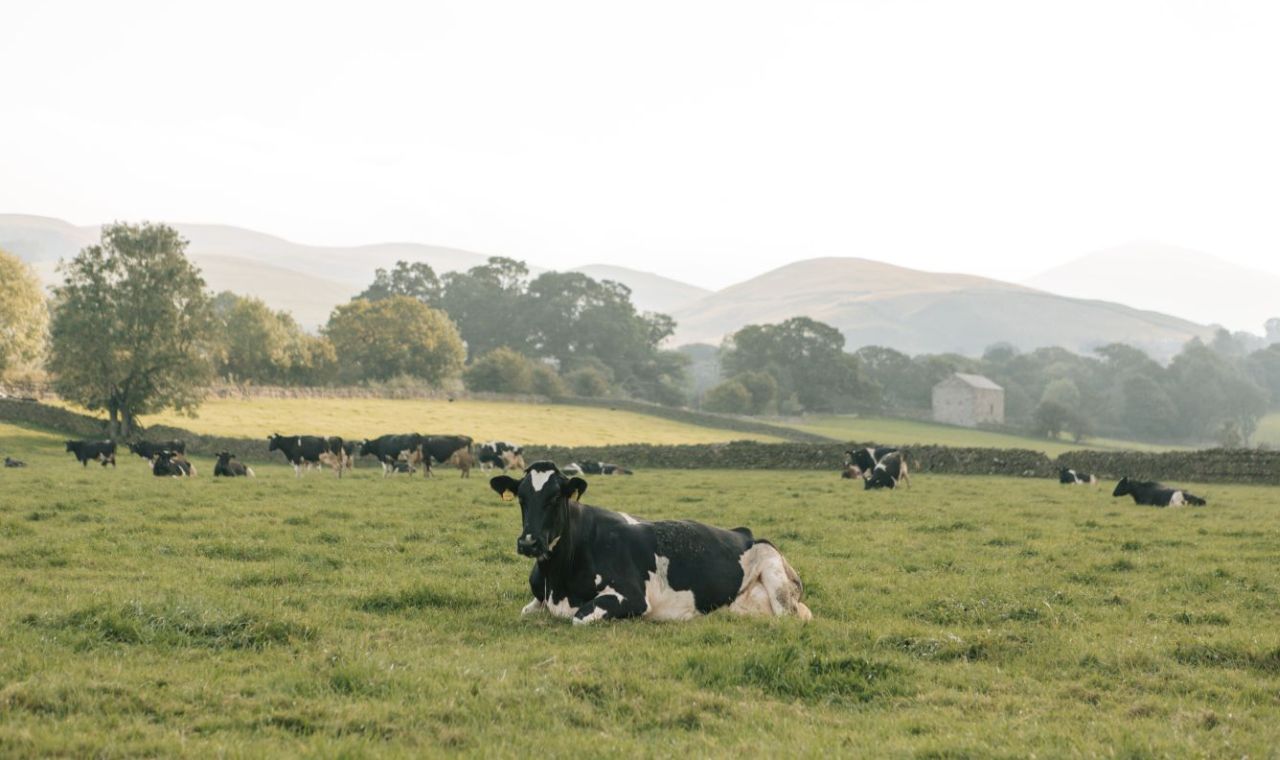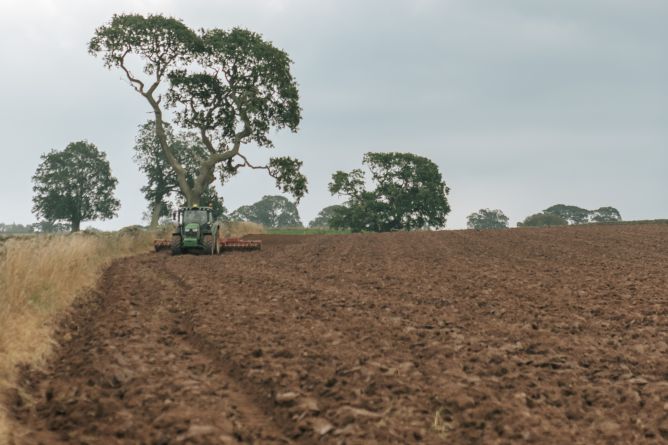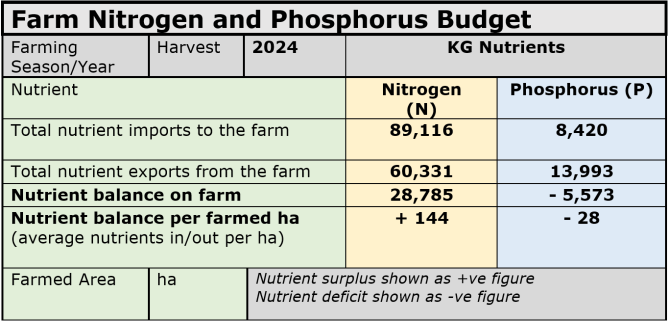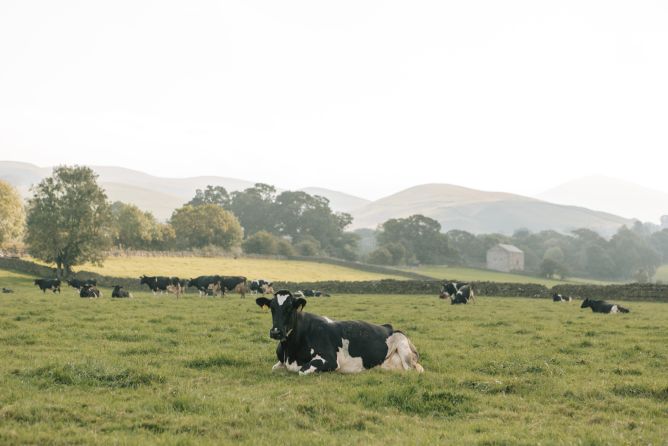Whole Farm Phosphorus & Nitrogen Plan (WFPNP)
Whole Farm P & N Planning for Cumbria and Borders Farms
Eco Prospects’ Whole-Farm Phosphates & Nitrogen Plan (WFPNP) helps livestock and mixed farmers across Cumbria, Dumfries & Galloway to take complete control of nutrient use. By balancing phosphorus (P) and nitrogen (N) across your whole farm – not just field by field – we show you where inputs are wasted, where losses put compliance at risk, and where smarter manure management decisions and fertilisers can save money while protecting soil and water.
Why Do I Need A Whole-Farm P & N Plan for Dairy or Mixed Farming?
Developing a comprehensive phosphorus and nitrogen plan for the whole farm brings several benefits to you:
- Farm-wide balance: tracks every source of N and P (fertilisers, manures, crops, livestock, deposition) against outputs and offtakes.
- Phosphorus risk management: identifies vulnerable zones, watercourse buffers, and field run-off risks to help prevent Phosphate losses.
- Nitrogen loading control: ensures NVZ or GBR limits are met, with derogations documented where needed.
- Audit-ready records: these records are aligned with EA (England) or SEPA (Scotland) requirements, Red Tractor standards, and SFI actions.
What’s Included in Whole Farm Nutrient Analysis For Getting N & P Farm Balances Right?
There are several important deliverables that help with mixed and dairy farm phosphorus management and agricultural production
- Whole-farm P & N balance sheet with clear surplus/deficit reporting
- Soil P index and pH assessment, with RB209 targets
- Use of PLANET or MANNER-NPK software for accurate manure nutrient values
- Field risk maps showing runoff routes, buffers, and high-loss areas
- Action plan for compliance with Farming Rules for Water (England) or Diffuse Pollution GBRs (Scotland)
- Optional Farmwise dashboard for in-season adjustments
How We Work With You to Improve Your Farm Nitrogen and Phosphorus Management
Our FACTS-qualified advisers start with your soil tests, cropping plan and livestock herd size. We then build a nutrient budget using industry-recognised tools backed up by our own knowledge of the Cumbria, Dumfries & Galloway region. The output is practical and defensible: a clear action plan, plus the audit pack you’ll need for regulators or assurance schemes.
Results You Can Expect From Whole Farm P&N Mass Balance Planning
Creating a Whole Farm Phosphorus and Nitrogen Plan, is much more than a tickbox compliance exercise. As well as supporting compliance with current agriculture and environment law, it brings benefits be ensuring you only buy the right amount nitrate and phosphorus fertiliser. Dairy farms will be more productive and for crop growing farms, plant growth will be optimised because the nutrient balances are correct across the whole farm.
- Lower nitrogen and phosphorus fertiliser bills by accurately valuing your slurry and farm yard manure
- Improved soil health and long-term productivity through improved farm phosphorus balance
- Reduced risk of pollution incidents or NVZ penalties
- Confidence in meeting Red Tractor, SFI, and assurance requirements
How It Differs From Nutrient Management Planning
Our Nutrient Management Planning service focuses on crop yield and field-level fertiliser strategies. The Whole-Farm P & N Plan goes further: it balances nutrient requirements across the entire holding. It’s equally applicable across the agriculture world. From farms concerned with crop growth, mixed agriculture, through to pure dairy farms.
Many farms discover the this process allows nutrient losses to be far more clearly understood. Environmental concerns are addressed by mapping risks to water and soils, and produces the compliance documentation regulators increasingly expect.
Nutrient Management Planning vs Whole-Farm P & N Plan
Which service is right for you?
If you only need guidance on crop-by-crop fertiliser use, our Nutrient Management Planning service may be enough. But if you want the bigger picture—a farm-wide view of how available phosphorus and nitrogen flow through your soils, livestock, food and forage crops—then the Whole-Farm P & N Plan is the smarter choice. It not only optimises fertiliser use but also gives you audit-ready compliance records and clear actions to protect watercourses and meet future scheme requirements.
Nutrient Management Planning (NMP)
- Focuses on crop and field-level fertiliser strategies
- Uses soil test results, RB209, and crop production plans
- Matches manures and fertilisers to crop requirements
- Ensures compliance with NVZ rules and retailer protocols
- Helps reduce costs and improve efficiency field-by-field
Whole-Farm Phosphates & Nitrogen Plan (WFPNP)
- Takes a whole-farm approach, balancing all P & N inputs and outputs
- Identifies surpluses, deficits, and risk areas across the entire holding
- Includes phosphorus loss prevention (buffers, runoff mapping, watercourse risks)
- Tracks nitrogen loading and derogations against NVZ/GBR rules
- Produces audit-ready documentation for EA/SEPA, Red Tractor, and SFI schemes
- Provides a board-level summary & compliance pack alongside field advice
Talk to Eco Prospects’ Ben Goad
Get your Whole-Farm P & N Plan
Talk to us about soil and nutrient management, book a soil sampling visit, or ask for a sample report.
Phosphorus & Nitrogen Balance — FAQs
What information do I need to provide?
We’ll need your latest soil analysis, cropping details, livestock numbers, and manure storage information. If you don’t have recent soil tests, we can arrange sampling.
Do I need this if I’m not in an NVZ?
Yes. Even outside NVZs, Farming Rules for Water (England) and GBRs (Scotland) still apply. A Whole-Farm P & N Plan shows due diligence and protects you against compliance risks.
Will this help with SFI or Red Tractor?
Absolutely. The plan provides the nutrient and manure management evidence that auditors expect, and positions you for future environmental scheme requirements.
What is a Phosphorus Mass Balance?
A phosphorus mass balance measures how much phosphorus enters and leaves a farm or other system. If more comes in than goes out, it can build up in soil or water and cause issues like nutrient pollution or algal blooms. If more leaves than enters, the system is losing phosphorus, which may affect soil fertility.
How much phosphorus per acre?
The right amount depends on your soil test and the crop. Many North West soils already have adequate phosphorus, so only apply what each field needs. Aim for a soil P Index around 2–3 to meet crop demand without wasting fertiliser.












